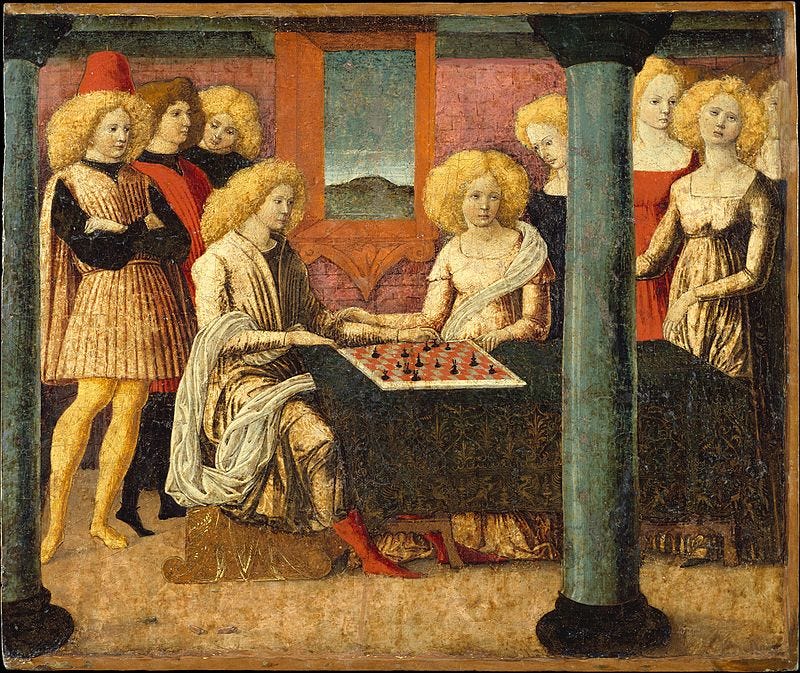I recently came across a very interesting post at Thog's Table where the main rulings used by the ‘high master’ EGG are pointed out. Among these, one struck me for what implies its use:
PCs must declare actions before initiative.
This sounds shocking to my ears!
The approach can be very difficult to the players as they should figure out the likely (not yet defined) sequence of initiative and the subsequent order of the effects of the actions.
If initiative matters (as it determines the order of the actions, thus the effects on characters), I have some concerns to establish the actions of my PC as a player… I could decide to carry out a completely useless action and miss another one which could be very effective!
To give the right importance to the sequence of players’ declarations, I designed a different approach in VI·VIII·X (as part of the KUP model): all the actions within a turn conventinally occur at the end of the turn, thus they are all simultaneous. By designing this solution, the sequence of declarations is the feature that can grant and advantage: the naivest PCs are the first to declare (without knowing the actions of the other characters), while the wisest are the last. I leave to the reader any further thought about the way the game develops.
As a conclusion, while I have often (if not always) found myself in total alignment with the view and the appraoch of the ‘high master’ (see previous posts like the one on the morality tracking for instance), this is the first time I don't understand him and cannot agree with his rule (or ruling) as it doesn't grant any value added: neither to the game (or GM), nor to the players as it completely relies on randomness.
Any modern game theory denies this kind of approach as your character could end up killed by an unlucky coincidence… a minimal portion of strategy should be embedded within game desing to my eyes.




